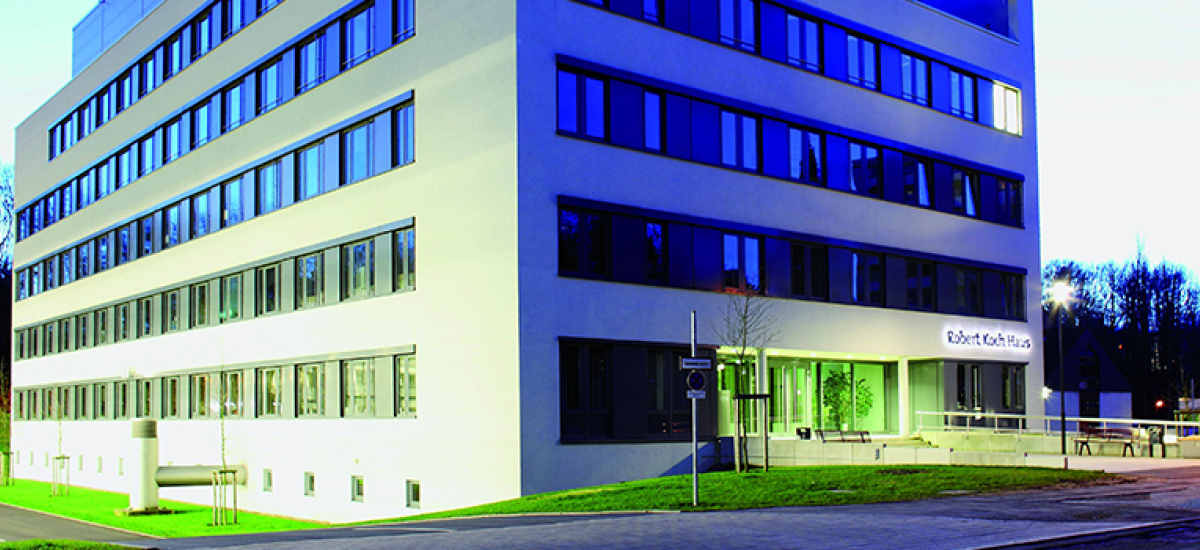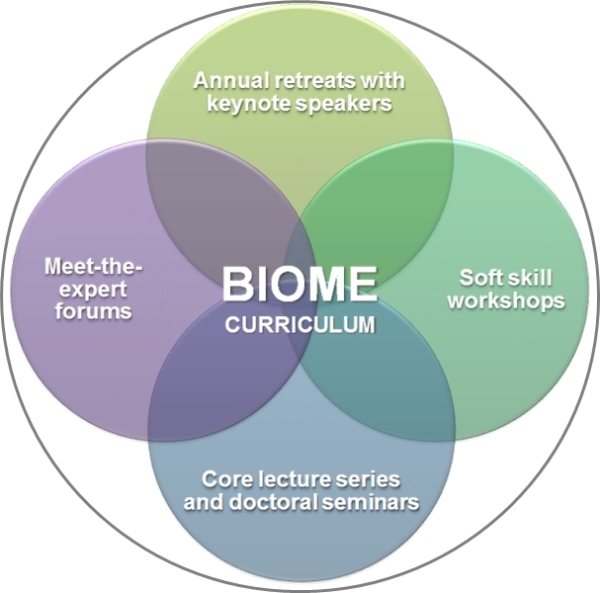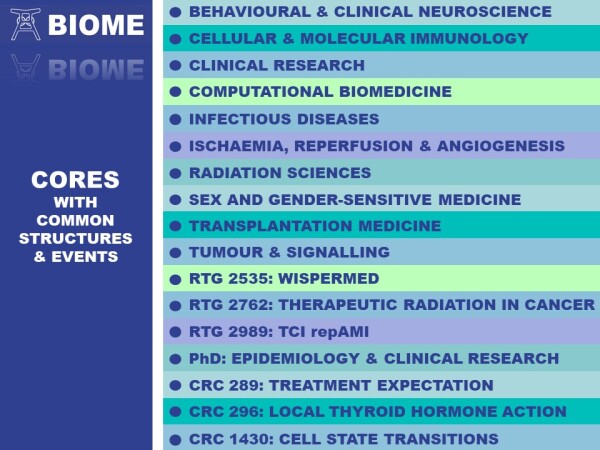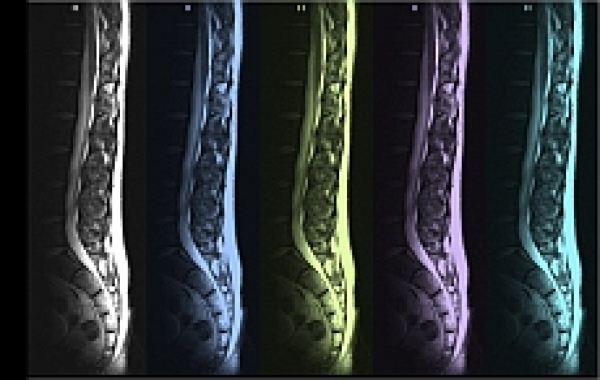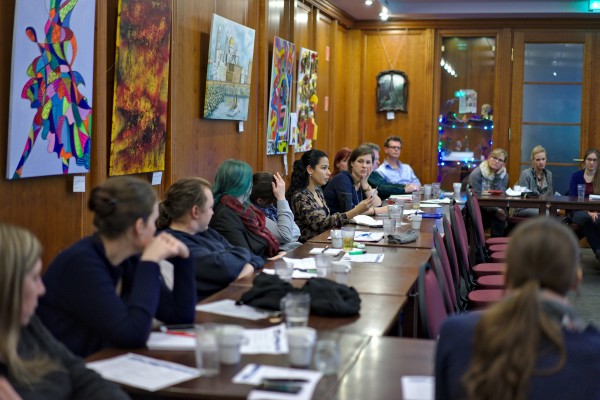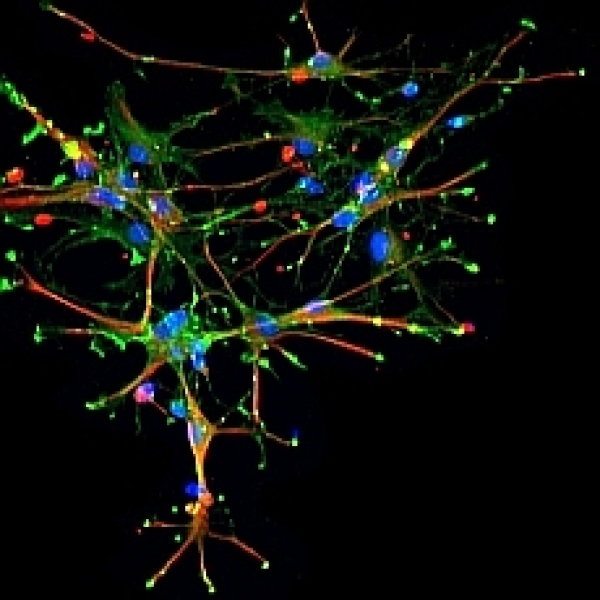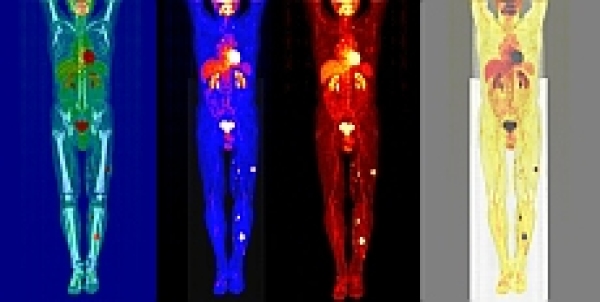BIOME - Home
BIOME Keynote Lectures
BIOME Headlines

19.03.2025 BIOME's Second-Ever MD/PhD Graduate
BIOME congratulates Dr. Dr. Xiaoyan Wang on completing her double doctoral degree at the Medical Faculty of the University of Duisburg-Essen after finishing the graduate school's MD/PhD programme. This is truly a rare and brilliant achievement!
After studying medicine at the Capital Medical University in Beijing, China, Xiaoyan Wang's research journey began at PD Dr. Wibke Bayer's group at the Institute for Virology in March 2021, and in September 2023 she successfully defended her MD thesis on the analysis of the seroprevalence of binding and neutralizing antibodies against 39 human adenovirus types, earning the academic title Dr. med.. Xiaoyan then commenced her PhD research on the analysis of the immunogenicity of human adenovirus types, of long-term dynamics in human adenovirus seroprevalence, and of adeno-associated virus seroprevalence, completing her Dr. rer. nat. degree in March 2025.
During her four-year MD/PhD study, she has published three first-author and one joint first-author publications. She has been actively involved in scientific exchange within the virology community, presenting her research at the Annual Meeting of the Society for Virology for four consecutive years (2022–2025), as well as at the 2nd Sino-German Mobility Programme Annual Workshop held in Shanghai and Wuhan in June 2024.
Xiaoyan says, "These four years have been an incredibly enriching experience for me. I've learned so much - whether in terms of experimental techniques, scientific thinking, or presenting research outcomes. Now, upon obtaining my MD/PhD degree, I'm truly grateful for the support throughout this journey in BIOME programme."

22.11.2024 UME's 23rd Day of Research
Almost 170 doctoral students took part in the 23rd Research Day of the Medical Faculty of the University of Duisburg-Essen (UDE). In the morning, the doctoral students' poster presentations were evaluated by 3-4 internal assessors in a total of 17 groups. The afternoon programme was opened by Prof. Dr. Ulrike Bingel, Vice Dean for Research, and Prof. Dr. Anke Hinney, Vice Dean for Academic Career Development and Diversity, presenting the doctoral award from the German Society for Transfusion Medicine and Immunohematology (DGTI) to the BIOME alumna, Dr. Laura Thümmler. Thereafter, Prof. Dr. Georg Schett from Erlangen University Hospital gave his guest lecture on the topic “CAR T cell therapy in autoimmune diseases”, which was followed by the science slam. Two BIOME doctoral students ended up competing with each other to take home the coveted award as Science Slammer of the Year. In the end, Melissa Ix won the 500 Euro prize for her slam “Your Nose Knows” on the topic of Parkinson's. Pascal Schneider received a participation bonus of 100 Euros for his slam “The Antenna of the Cell”. At the end, the 17 best poster presentations were awarded 350 Euros each, including the BIOME members, Lara Kaumanns, Michelle Elbert, Jasmin Schmidt, Janina Müller, Patrick Pais Pereira, Paula Steinhoff, Johanna Sophie Gronen, Eva Diesterbeck, Areya Tabatabai, Adila Apsara, Svenja Christina Erkelenz, and Sarah Lena Schebitz. Once again, all prizes were provided by the StiftungUniversitätsmedizinEssen.
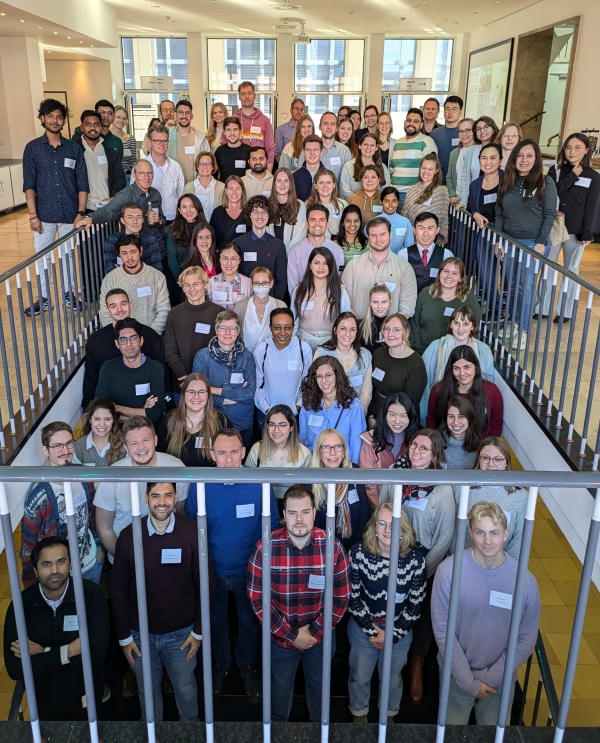
04-05.11.2024 Triple-Core Retreat in Essen
The three BIOME cores, Cellular and Molecular Immunology, Infectious Diseases, and Tumour and Signalling, gathered locally off-campus for their annual interdisciplinary research exchange. Every doctoral researcher was given the opportunity to present and discuss their work with peers either in talks or posters in a translational environment. Invited guest speakers were Daniel Sauter (Universitätsklinikum Tübingen) who shared his insights on the mechanisms of innate antiviral immunity, and Cornelia Monzel (Heinrich-Heine-University Düsseldorf), an experimental medical physicist who focuses on multimodal imaging in chimeric antigen therapy. Both keynote speakers also briefly described their personal career paths and gave the young researchers some words of advice for their professional futures based on their own experience. The two-day event ended with the awarding of certificates for the three best poster presentations to Nadine Gausmann, Leonie Kerkmann, and Kulvara Kittisares, while the best lecture award went to Jillian Brown. Special mention should also be made of the members of the 2024 doctoral retreat orga-team consisting of Elaheh Madadi Hiagh, Hannah Breiter, Frederik Schramm and Yue Yu who put in a lot of background effort towards making this event the overall success it was.
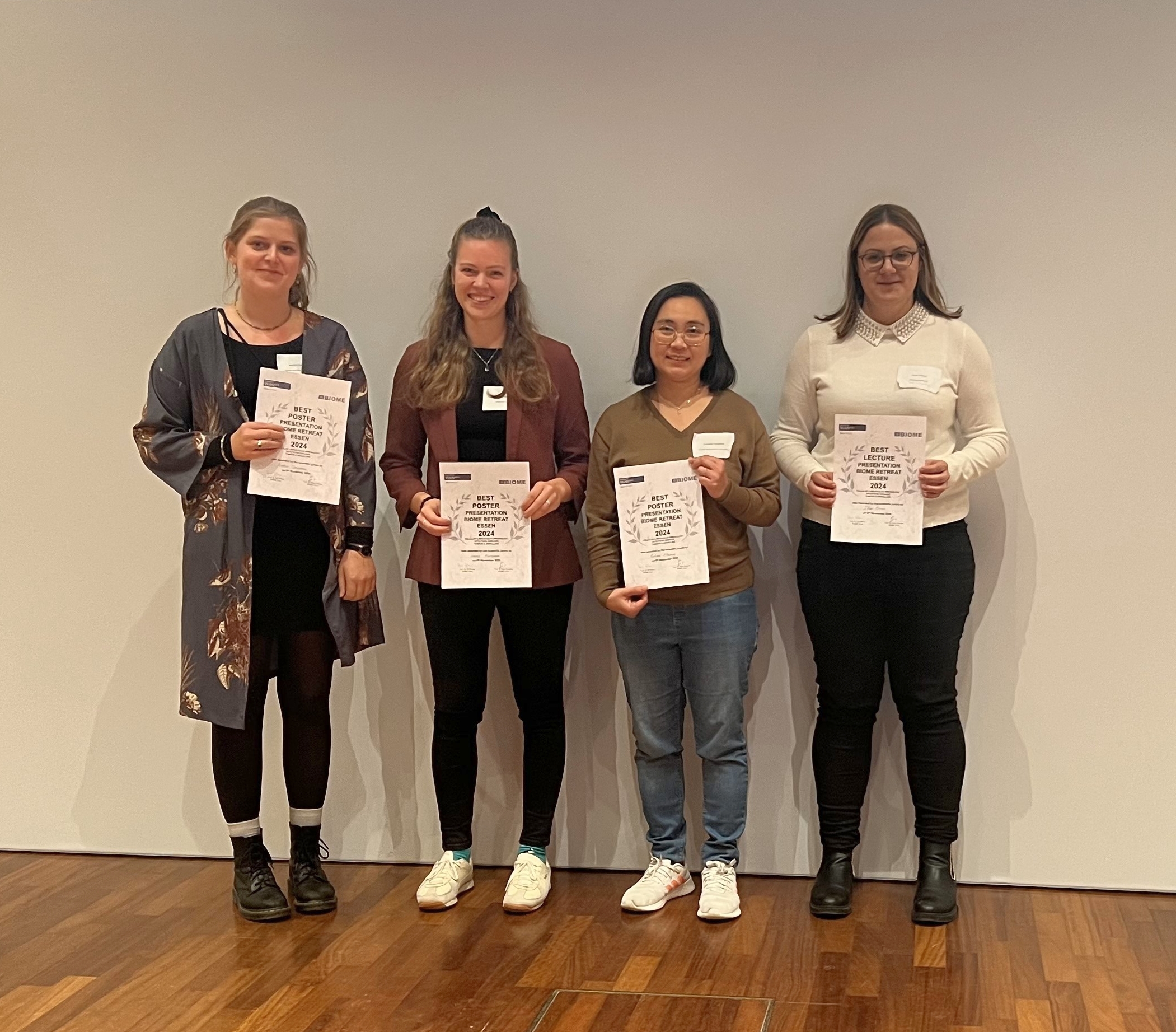
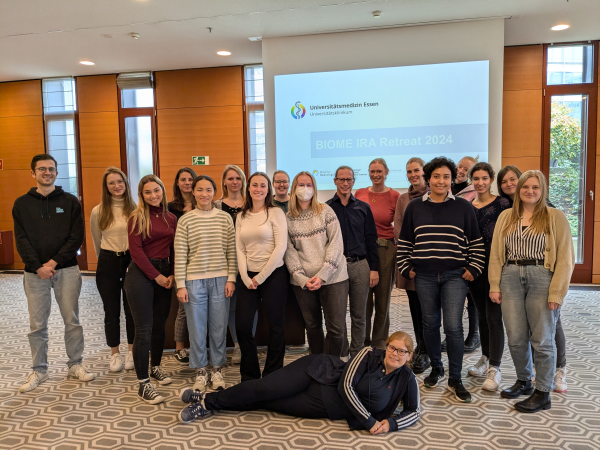
24.10.2024 Exploring Functional Connectivity
Meeting in Cologne, the Ischaemia, Reperfusion and Angiogenesis annual retreat began with the keynote speaker, Markus Aswendt (University of Cologne Clinic). His lecture on "The role of astrogliosis in recovery after stroke - a functional connectivity study in mice" took the young researchers from the translational roadblock and what can be done about it, to how to implement these rules in practice in the laboratory. The importance of electronic lab notebooks, group-specific data storage, automated data processing (for MRI, histology, etc.) and "standard operating procedures" (SOPs) was highlighted. This way, even after members leave the working group after successful graduation, the raw data can be found again, and the documentation of the experiments can be used for e.g. publication. As a practical example from his working group, an experimental study with KO mice lacking two astrocyte proteins after photothrombosis was presented. These mice did not recover as well after the stroke as their littermates, which could be proven e.g. with MRI, histology and behavioral tests. Astrocytes are therefore important for recovery from a stroke. After the exciting and very informative lecture, many questions were asked and discussed.
Following this, the day continued with the doctoral presentations. In these group presentations, the systemic effects of kidney ischemia, atrial fibrillation, pregnancy, or a stroke were explained and subsequently also lively discussed. Thereafter, the Body Worlds exhibition was visitied, where the exhibits were viewed with great interest and sometimes disbelief. Despite medical prior knowledge (to varying degrees), there was much to discover and learn there.

04.09.2024 New BIOME Core on Sex and Gender-Sensitive Medicine
The relevance of sex and gender-sensitive medicine has become more evident during the last decade. It is clear that this is a central field in medical research and patient care and is important for most medical disciplines. Women and men can suffer from the same diseases but these may manifest themselves in different ways. This is mainly due to the different genetic and hormonal constitutions, which affect anatomy and physiology. It can result in different disease risks, patho-physiologies, symptoms and progression. In addition, sociocultural factors influence the disease process differently in men and women, generating a highly complex multifaceted situation. However, sex and gender differences in medical care as well as in research and teaching are still insufficiently considered. To bridge this gap, Prof. Dr. Anke Hinney and PD Dr. Andrea Kindler-Röhrborn have initiated a multidisciplinary training programme for next-generation MD and PhD researchers in basic, translational, and clinical research aspects of sex and gender-sensitive medicine, kicking off in October 2024.
"We regard the core as an interdisciplinary platform for knowledge and method transfer, a forum for scientific discussion, and a starting point for a network of early career researchers and alumni who are dedicated to fostering sex and gender-sensitive medicine," says Prof. Anke Hinney.
At a Glance
The most important information at your fingertips
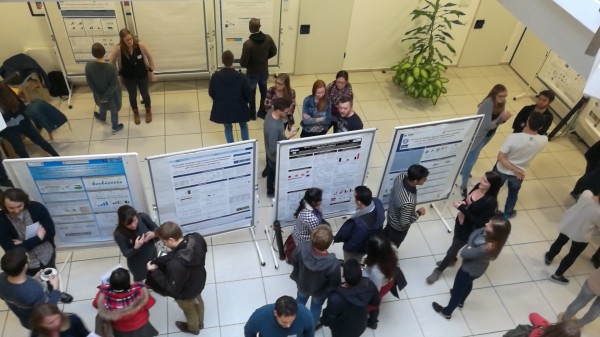
Soft Skills
A career in science is not just about knowledge, it is also about conveying that knowledge effectively.

Applications
Any open doctoral or post-doc vacancies as well as the procedures for external and internal applicants wishing to join BIOME can be found here.
About Us
The Graduate School of Biomedical Science at the University of Duisburg-Essen in Germany has been founded to integrate all PhD and MD graduates within the Faculties of Biology and Medicine into a cutting-edge interdisciplinary study programme tailored to ensure that they receive an outstanding, globally focused academic education. Additionally, we have created an intramural umbrella organisation for the research foci through the erection of a synergetic framework between the research training groups (RTGs) and the BIOME thematic cores. The university’s internal drive to provide structures furthering soft skills, gender equality and family-oriented support additionally contributes to an excellent, all-round tertiary environment.
Read moreMore about BIOME

Other Events
Additional scientific seminars, conferences, and other activities of interest.
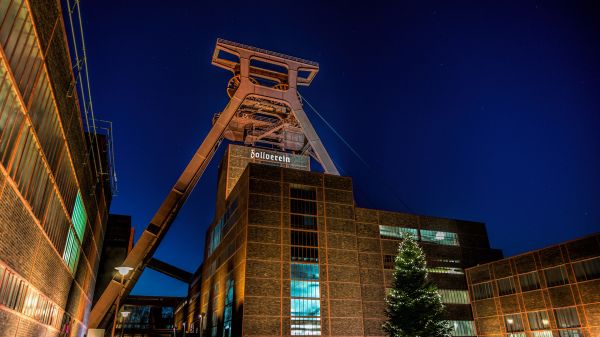
International Students
Find out why the Ruhr Metropolis is a cool place to be.
Photo © Pixabay

